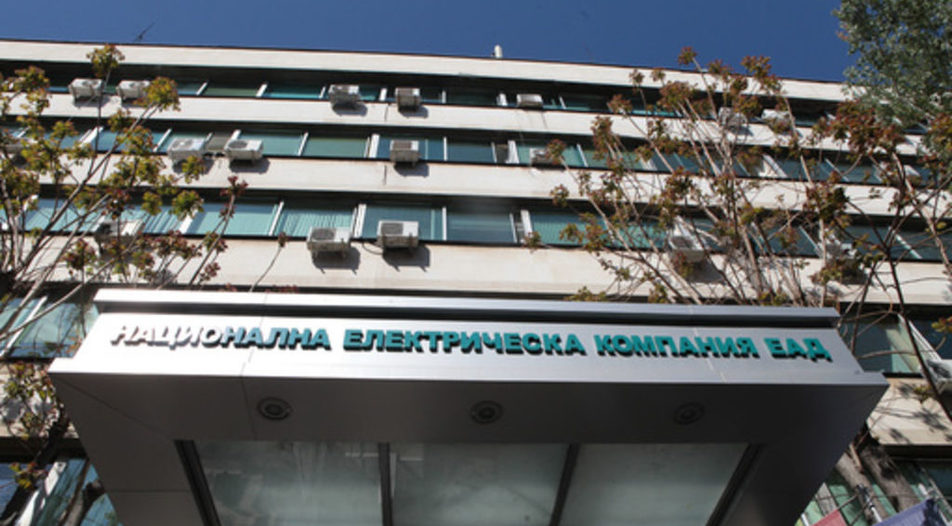Last year, the National Electricity Company (NEK) improved its results for the first time since 2012. In 2015, its loss was 197 mln levs (101 mln euro), about a third of the 2014 loss of 587 mln levs (300 mln euro).
NEK, which is the backbone of the electricity system due to its status of a single buyer from the power plants and supplier to the regulated market (households and small businesses), has been in constant financial distress over the last five years.
With the regulated market accounting for about 50% of electricity consumption in Bulgaria, NEK's losses had been mounting since the second half of 2011 due to a regulatory decision to suppress a rise in consumer prices. The State Energy and Water Regulatory Commission failed to adequately compensate NEK for the legislatively imposed obligations to buy expensive green energy, whose production boomed in 2012, as well as electricity co-generated by central heating plans and industrial installations. NEK is also obliged to buy considerable amounts of expensive electricity under long-term power purchasing agreements with the local units of US-based AES Corporation and CountourGlobal.
NEK didn't file for bankruptcy only because of its public status and the fact that most of its debtors were other state-owned companies.
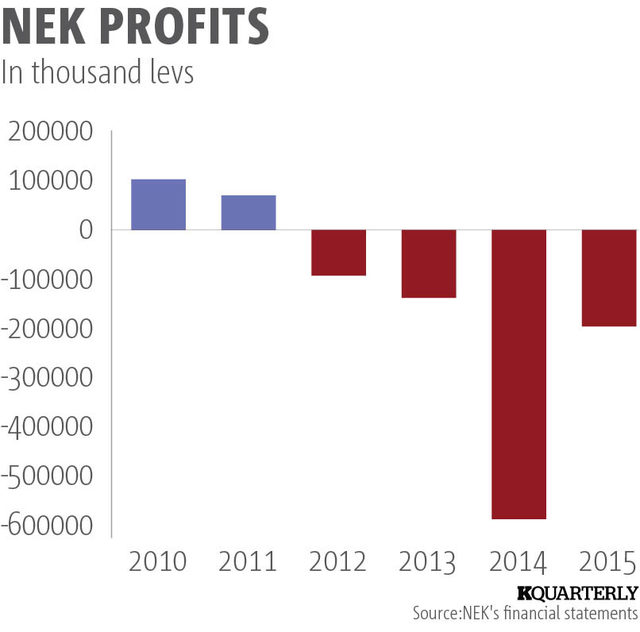
Since the beginning of 2015, however, NEK has been receiving significant financial injections as a result of amendments to the Energy Law. All the proceeds from the sale of the state-owned CO2 quotas (part of the EU ETS) have been directed towards NEK, reducing its tariff deficit. In addition, all electricity producers are obliged to pay a 5% levy on their turnover, with the proceeds going to NEK as well. The third significant boost to NEK finances came from an increased "obligations to society" fee. The fee is paid by all electricity consumers and is intended to compensate NEK for its obligations to buy green and co-generation electricity. Until recently, however, big businesses were not obliged to pay the fee in full.
NEK financial stabilization remains shaky, because none of the fundamentals in the Bulgarian energy system has improved.
Reduced energy bills for Big industry
Industrial consumers will be spared the full cost of green energy.
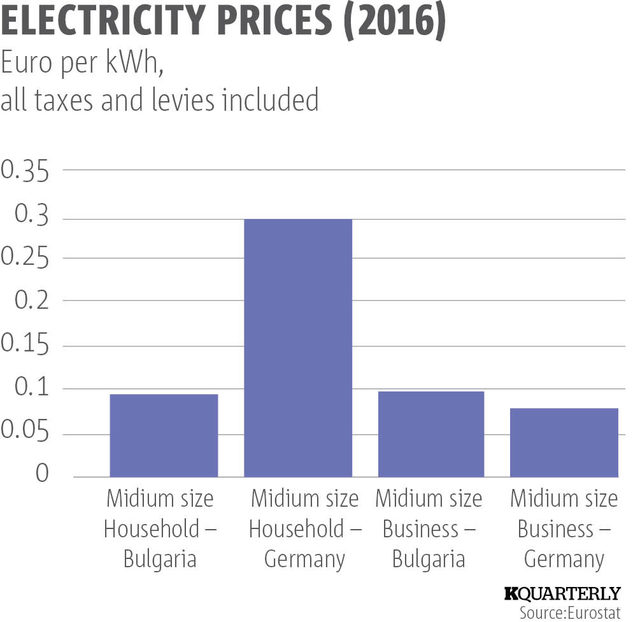
As of August, big electricity consumers have a special discount on the green energy component of their bills. Companies with annual consumption of more than 30 GWh of electricity and energy intensive production will pay only 15% of the green energy component of the "obligation to society" fee. While the rest of the electricity consumers are levied a surcharge of 35.77 levs per MWh, big electricity consumers pay between 16.12 levs (8.2 euro) and 26.53 levs (13.56 euro) depending on their energy intensity.
The companies could get a rebate on their electricity bills for the past 12 months, because a government decree has been postponed for almost a year, awaiting approval from the European Commission.
Belene NPP sucks another billion levs
620 mln. euro will be paid to Russia's Rosatom for equipment manufactured for the terminated nuclear power plant project
The Bulgarian parliament voted a special law on September 20 stipulating that the government could loan an unspecified sum to NEK to repay debt owed to Russia's Rosatom. NEK lost an arbitrage in the International Court of Arbitration (ICC) in Geneva against the Russian company which is the main supplier of equipment for the Belene NPP. The ICC awarded a 620 mln. euro compensation to Rosatom's subsidiary Atomstroyexport for the manufactured, yet unpaid for equipment for the ill-fated nuclear power plant project. The law doesn't specify the precise amount of money, because the ICC awarded 167,000 euro interest to Rosatom for every day of delay in the payment of NEK's dues.
The construction of the Belene NPP, which began in 1981, was restarted in 2006 but ran into serious problems three years later. NEK was left as the sole investor in the project following the RWE departure. The German company was selected as co-investor in 2008 but several months later it became disgruntled by NEK's method of work and withdrew from the project in 2009. Having remained alone, NEK was unable to pay for the construction.
Later, several attempts were made to reinvigorate the project but they only postponed the final termination and made it more expensive. The overall cost of the unsuccessful attempt to build a second NPP in Bulgaria is 1.3 billion euro, most of it taxpayers' money.
Strangely, Bulgaria has decided not to contest the ICC ruling, neither in Geneva, nor in Sofia. Some observers see the decision as a goodwill gesture towards Russia. On the one hand, Rosatom might help resell the equipment, while on the other the company might smooth the way for other energy projects with Russian participation.
Bulgartransgaz makes another step towards opening the gas market
The company finally allowed virtual gas trade
As of July it is already possible to conclude virtual gas deals in Bulgaria, i.e. without physically moving the gas. In this kind of deals a company in Greece could swap gas volumes with a Bulgarian counterpart. The Bulgarian company will receive them either from locally stored gas or from the transit flows to Greece.
The technical breakthrough came with the modernization the interconnection point (IP) Kulata-Sidirokastro which now permits virtual reverse flow.
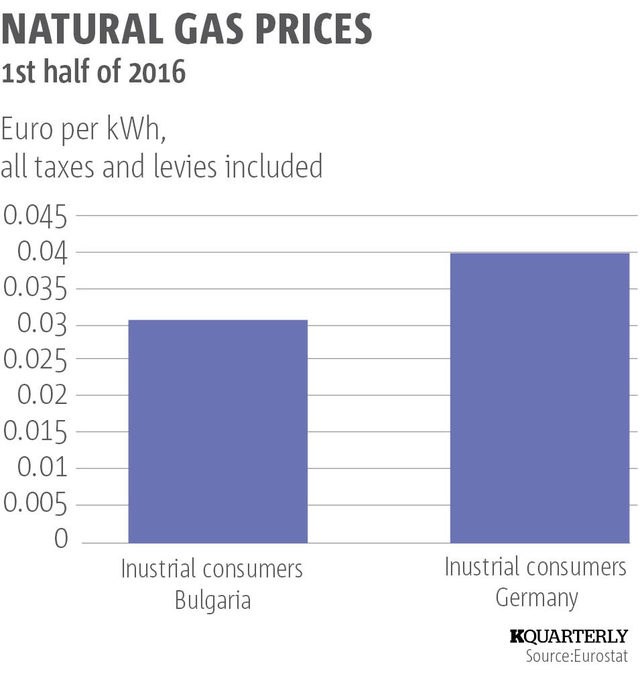
The more important regulatory breakthrough is due to years of European Commission pressure on Bulgaria to align national legislation more closely with the EU practice. Until recently, the Bulgarian transmission operator Bulgartransgaz rejected any attempt for virtual trade, referring to its contract with Gazprom that doesn't permit swap deals. Several years ago, Bulgartransgaz won a case before the European Court of Justice against the European Commission which sued the company for its intransigence. However, pressured by Brussels, both Bulgartansgaz and Gazprom (DG Competition is still investigating the Russian company for suspected abuse of dominant position) had to change their practices.
The first deals concluded in July only tested the system. At present, the Gazprom-supplied gas is cheaper for the Bulgarian consumers than the available alternatives.
Bulgaria mulls acquiring a stake in a LNG terminal in Greece
Sofia wants to increase competition in its gas market and put a brake on Gazprom's price decisions
The Bulgarian Energy Holding (BEH), the company which controls state-owned energy assets, mulls acquiring a stake in the Alexandroupulis LNG terminal project. The 400 mln. euro LNG terminal, promoted by Greece's Gastrade SA, will be located on the northeastern Greek Aegean coast, near Turkey.
The move follows the poor results of the first market test of the Greek-Bulgarian gas interconnector (IGB). The IGB project, with annual capacity of 3 billion cubic meters, aims to provide Bulgaria with an uninterrupted access to alternative gas supplies. The project is planned to enter into operation by 2019. But at the end of December 2015 only two companies - Bulgarian Bulgargaz and Greek DEPA - expressed interest to use the future pipeline, with declared combined interest of 1.2 billion cubic meters annually. Bulgargaz has a contract with Azerbaijan to buy 1 billion cubic meters of gas annually when the Caspian field Shah Deniz II becomes commercially operational, while DEPA expressed interest to import into Bulgaria 200 mln. cubic meters of gas.
The Bulgarian interest in the Alexandroupulis LNG terminal prompted more companies to attend the second non-bidding phase of the IGB market test. Most of them plan investment in the LNG terminal. The first one, Gastrade SA, is the originator of the project, Nobel Energy considers the Aegean terminal as a possible entry point into the European market. Azeri SOCAR, and Edison hope to enter the Southeast European gas market as well.
BEH hopes its possible stake in the Alexandroupolis terminal will allow Bulgaria to tap the global LNG market without having long-term supply contracts. Such flexibility will finally permit Bulgarian companies to arbitrate between various suppliers and will put pressure on Bulgaria's main supplier, Gazprom, to price its gas according to the global trends.
Lukoil Considers Selling its Bulgarian Assets
The Russian company is the dominant player in the Bulgarian fuel market
Oil giant Lukoil declared at the beginning of June that the sale of its assets in Romania, Bulgaria, Italy and the Netherlands is under discussion. The statement of Lukoil's president Vagit Alekperov signaled the company's intention to concentrate its business on exploration and development and divest some of its non-core assets.
Lukoil's announcement came as a surprise to Bulgaria. The Russian company is doing quite well in the Bulgarian market. Even though the company regularly ignites consumer criticism because of its price policy, it has never met serious regulatory or legislative challenges like in neighboring Romania where it faces charges of tax fraud.
Lukoil owns Bulgaria's sole oil refinery, Lukoil Neftohim Burgas, as well as Lukoil-Bulgaria, which is the biggest fuel wholesaler; and a chain of more than 200 filling stations, which make up about 35% of the fuel retail market. The company's combined annual turnover from its operations in Bulgaria exceeds 6 billion euro.
Earlier this year, the Bulgarian competition authority, KZK, launched an ambitious probe into suspected abuse of dominant position against Lukoil Neftohim. The results are yet to be seen.
In recent months, Azeri oil major SOCAR expressed interested in the Bulgarian oil and gas market, hinting at possible investment in the refinery.
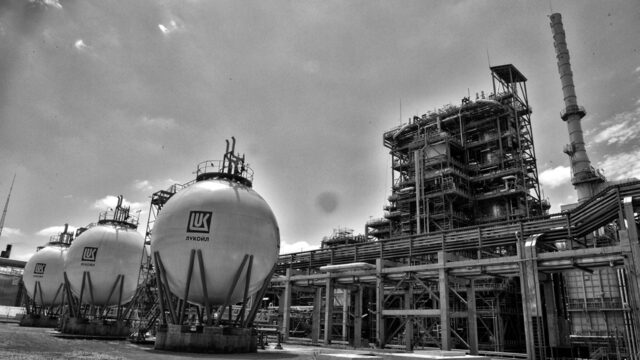
Last year, the National Electricity Company (NEK) improved its results for the first time since 2012. In 2015, its loss was 197 mln levs (101 mln euro), about a third of the 2014 loss of 587 mln levs (300 mln euro).
NEK, which is the backbone of the electricity system due to its status of a single buyer from the power plants and supplier to the regulated market (households and small businesses), has been in constant financial distress over the last five years.








